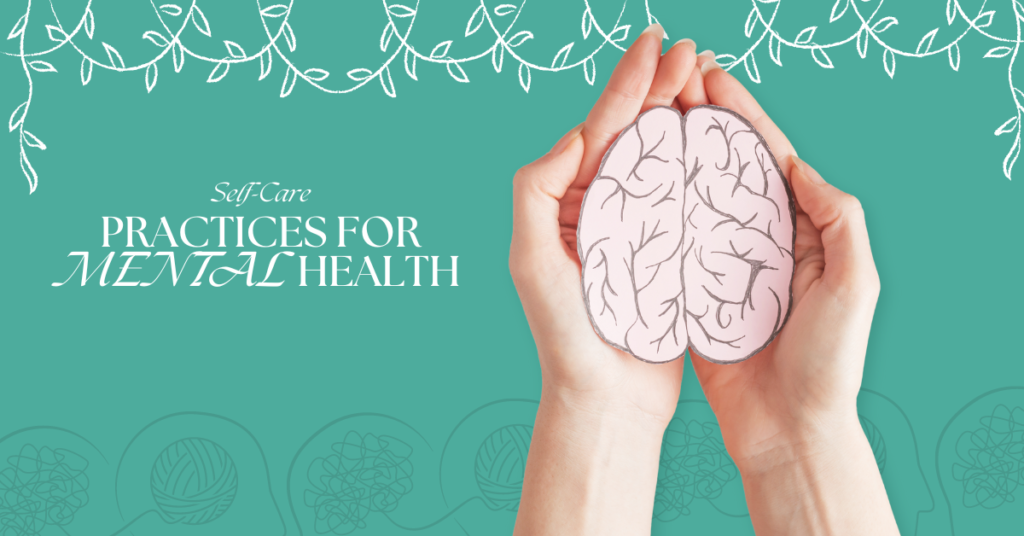
Essential Practices for Nurturing Your Mental Wellbeing
In our fast-paced world, it’s easy to get caught in a relentless cycle of work, obligations, and external pressures. This constant busyness can take a toll on our mental health, leaving us feeling drained, overwhelmed, and susceptible to stress and anxiety. Here’s where self-care steps in – a powerful approach to prioritizing your well-being and fostering emotional resilience.
Self-care isn’t about bubble baths and face masks (though those can be lovely!). It’s a comprehensive strategy encompassing various practices that nourish your mind, body, and spirit. By incorporating these practices into your daily routine, you create a sanctuary for yourself, a space to recharge and cultivate inner peace.
The Pillars of Self-Care
Self-care encompasses a variety of practices, but some core areas deserve special attention:
- Emotional Awareness: The foundation of self-care lies in understanding your emotions. Practice mindfulness – paying attention to your thoughts and feelings without judgment. Journaling your emotions can also be a powerful tool for self-discovery.
- Healthy Habits: Fueling your body with nutritious foods, getting regular exercise, and ensuring adequate sleep are essential for optimal mental health. Prioritize these healthy habits for a solid foundation of well-being.
- Stress Management: Chronic stress wreaks havoc on our mental state. Develop healthy coping mechanisms for managing stress, such as deep breathing exercises, meditation, or spending time in nature.
- Positive Relationships: Strong social connections are vital for emotional well-being. Nurture relationships with loved ones who support and uplift you. Consider joining a club or volunteering to expand your social circle.
- Meaning and Purpose: Having a sense of purpose in life contributes significantly to mental health. Explore activities that ignite your passion, whether it’s volunteering for a cause you care about, pursuing a creative hobby, or simply spending time in quiet reflection on your values.
Building Your Self-Care Routine
Self-care isn’t a one-size-fits-all approach. What works wonders for one person might not resonate with another. The key is to discover practices that bring you joy, relaxation, and a sense of renewal. Here are some ideas to get you started:
- Mind-Body Practices: Activities like yoga, meditation, or tai chi can promote relaxation, reduce stress hormones, and improve emotional well-being.
- Creative Expression: Engaging in artistic pursuits like painting, writing, or playing music provides a healthy outlet for emotions and fosters a sense of accomplishment.
- Spending Time in Nature: Immersing yourself in nature has a well-documented calming effect. Take a walk in the park, go for a hike, or simply sit outside and breathe in the fresh air.
- Digital Detox: Constantly being plugged in can be mentally draining. Schedule regular breaks from technology to disconnect and recharge.
- Gratitude Practice: Taking time to appreciate the positive aspects of your life, big or small, can significantly boost your mood and overall well-being. Keep a gratitude journal or simply take a few moments each day to reflect on what you’re grateful for.
Remember: Self-care isn’t selfish, it’s essential. When you prioritize your well-being, you become a better version of yourself – more patient, resilient, and capable of navigating life’s challenges.
Beyond the Basics: Tailoring Self-Care to Your Needs
While the core principles of self-care remain constant, individual needs can vary. Here are some ways to personalize your self-care approach:
- Identify Your Stressors: What triggers your anxiety? Is it work deadlines, social situations, or financial worries? Once you identify your stressors, you can tailor self-care practices to address them specifically.
- Listen to Your Body: Pay attention to your body’s signals. If you’re feeling tired, take a nap. If you’re craving a healthy meal, nourish your body. Tuning into your body’s needs is crucial for self-care.
- Schedule Self-Care Time: Don’t leave self-care to chance. Schedule time in your calendar for activities that bring you joy and relaxation. Treat these appointments as important as any other commitment.
- Don’t Be Afraid to Experiment: There’s no right or wrong way to practice self-care. Try new activities and discover what works best for you. Be open to different approaches and find what resonates with your unique personality.
Self-Care for Challenging Times
Here are some tips for maintaining your self-care routine during challenging times:
- Focus on the Basics: When things get tough, prioritize the fundamental pillars of self-care – healthy sleep, nutritious meals, and regular exercise. These habits form the foundation for emotional resilience.
- Practice Self-Compassion: Be kind to yourself. Challenges are inevitable, and it’s okay to not be



